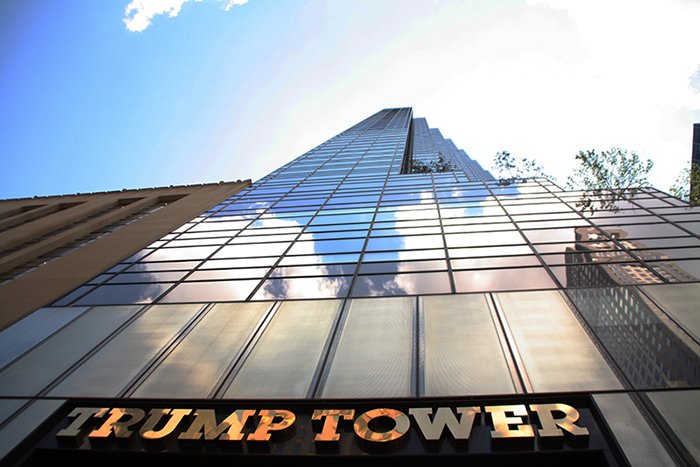This Thursday, the new president of South Korea, Moon Jae-in, quickly moved to better relations with China through his announcement of his plans to send a delegation to Beijing in order to settle a continuous disagreement regarding the deployment of an American missile-defense system to the nation.
The issue of diminishing tensions prompted by the antimissile system was a vital subject of discussion in the conversation that ensued as Chinese President Xi Jinping called Moon on Thursday to commend him on his victory in the presidential election which had occurred two days prior.
Over the course of the campaign, Moon had voiced critiques geared towards the antimissile system, which is commonly known as Terminal High Altitude Area Defense (Thaad), and which is viewed by Chinas as a threat to its national security. In the phone call, Xi requested that Moon visits Beijing shortly, according to Moon’s office.
Moon’s predecessor, Park Geun-hye, who was impeached and overthrown as president, had conceded to the deployment of Thaad, declaring that it was necessary to protect South Korea against an escalating ballistic missile threat from North Korea. However, the Thaad system has caused a profound rupture in relations between Beijing and Seoul and has even provoked extensive boycotts in China of renowned South Korean brands.
“I am well aware of the concern and fear of the Chinese about the Thaad deployment,” Moon apparently affirmed in the call when Xi clarified the Chinese posture on the matter. “I hope both countries can understand each other better on this and will soon open a channel of communication.”
During the 40-minute conversation, Moon opened up about his plans to send separate delegations to Beijing with the purpose of engaging in discourse regarding the Thaad disagreement and North Korea’s nuclear threat.
Thaad is one of the prickliest diplomatic issues facing the newest leader of South Korea.
This past Thursday, Moon asked Xi to facilitate the cessation of the Chinese boycott of South Korean products.
“It will be easier to resolve the Thaad issue when North Korea doesn’t do any more provocations,” Moon declared, according to Yoon Young-chan, the Chinese president’s spokesman. Moon has implied that if China desires to have Thaad removed from South Korea, it should engage more actively in reining in North Korea’s nuclear and missile programs.
A considerable amount of Moon’s liberal supporters disapproved of the Thaad deployment, alleging the involvement of Washington in imposing a weapons system on South Korea that they affirm is part of a larger American scheme to contain China via the use of an antimissile shield. President Trump angered the group further lately with his demand that South Korea pay $1 billion for the system.
However, if Moon asks that the United States extract the defense shield, which became operational in the past week, then Moon would risk damaging South Korea’s close alliance with the United States and it would also appear as if he were yielding to Chinese pressure.
Moon has already been charged with accusations from the nation’s conservatives that his stress on discourse with North Korea would burden their ties with Washington.
In the call on Thursday, Moon and Xi discussed their comparable tactics to put a stop to North Korea’s nuclear calamity.
Moon argued in favor of there being dialogue with North Korea, accentuating that the objective of sanctions must be to bring the country back to a state of negotiation—opening the door for collaboration, harmony and improved relations. Xi expressed a similar view to such, according to Moon’s office. The state-run Chinese news media additionally reported that Xi stated that the nuclear concern should be resolved through talks.
“I have never met you, but I have been watching you with great interest,” Xi stated to Moon in the same telephone conversation, according to the South Korean leader’s office. “I have been greatly impressed by your unusual personal background, thoughts and viewpoints.”
Moon, who is a former student activist and human rights lawyer, held office in the government of Roh Moo-hyun, who was the South Korean president from 2003 to 2008 and who held a particular focus on encouraging dialogue and economic exchanges with North Korea.
Moon’s election indicated the reappearance of the liberals to the main stage of South Korean diplomacy. The group generally opines that the American policy of relying on sanctions and pressure has been unsuccessful in convincing North Korea to give up its nuclear weapons programs. In his inaugural speech as president this past Wednesday, Moon asserted that he would even be willing to meet North Korean leader Kim Jong-un, if the conditions were acceptable or ideal for such.
South Korean liberals also hold the view that their nation’s recent diplomacy has been too focused on Washington, and that South Korea should not be pulled into the ensuing hegemonic brawl between the United States and China.
Regardless of such, in a telephone call with Trump, Moon vowed to fortify his nation’s alliance with Washington, deeming it to be “the foundation of our diplomacy and national security.”
Moon’s commentary seemed to be intended to assuage worries that his new liberal government—and its keenness for diplomatic and economic engagement with North Korea—could potentially cause the formation of a split in relations with the United States.
Also on Thursday, Moon engaged in a 25-minute phone conversation with Prime Minister Shinzo Abe of Japan. The two leaders decided to hold a summit meeting in the near future, according to representatives of both sides.
Abe additionally urged that South Korea sustain a December 2015 agreement in which the two nations proclaimed what they called at the time a “final and irreversible” settlement on the matter of “comfort women,” which is a euphemism for Koreans forced into sexual slavery for Japan’s World War II army.
In the past, Japan acknowledged responsibility and extended a novel apology to the women, assuring the creation of an $8.3 million fund to help provide old-age care. Despite the initiative, some of the women have since vetoed the deal, declaring that it failed to note Japan’s “legal” responsibility or to provide formal reparations.
The agreement also proved to be highly unpopular among the populace of South Korea, and during the presidential campaign, all of the candidates, including Moon, asserted that they were not in favor of it.
“The reality is that most of our people emotionally cannot accept the deal,” Moon was quoted as saying by his office. However, he soon interrupted what he had been in the midst of expressing interest in terminating the pact.
His office maintained that Moon also highlighted that clashes deep-rooted in history—being that Japan had colonial power over Korea in the beginning of the 20th century—should not impede the nations from developing ties and collaborating in an effort to fend off the North Korean nuclear threats.
Featured Image via Wikimedia.













































It’s the right thing to do!
Tension must be removed
Sheds light on Moon’s background and is packed with useful facts.
I appreciated the in-depth background story of the problem with the THAAD program this article gives. Very informative read!
I am still wary about China’s ties to North Korea